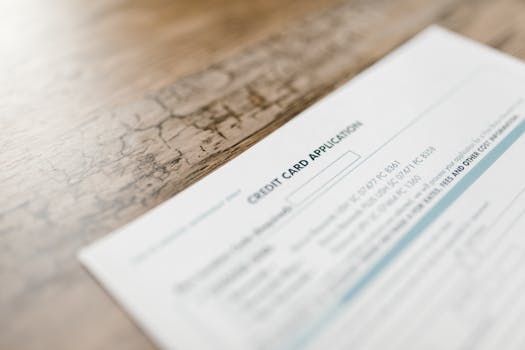Alaska Tags And Title Anchorage
Understanding Fees Associated with Vehicle Registration
The fees associated with vehicle registration can often seem daunting, but a clear understanding can make the process simpler and more manageable. First, it’s crucial to recognize that vehicle registration fees vary significantly based on location. Different states or provinces have their own fee structures, and this can impact the overall cost significantly. For instance, I’ve seen registration fees range anywhere from $20 to over $200, depending on the state.
Another factor to consider is the type of vehicle being registered. Larger vehicles or those classified as commercial often incur higher fees than standard passenger vehicles. This means my truck, for example, comes with a higher price tag at the DMV compared to my compact car.
Additionally, there may be other fees tied to registration. These can include road use taxes, emission tests, and sometimes even special district fees if you live in a particular area. I found that some states require additional fees for personalized license plates or special designations, which can inflate the overall cost quickly.
Timing can also play a role. Late fees are a reality if you don’t renew your registration on time, often adding a significant amount to your expense. I’ve learned this the hard way, and it’s evident that keeping track of renewal dates is necessary to avoid those unpleasant surprises.
Don’t forget about the potential for discounts. Some states provide reduced fees for certain groups, such as seniors or veterans, which can lower costs considerably. Researching available options could save money you didn’t even know you could keep. By understanding these varied aspects, you can better prepare for the costs associated with vehicle registration, avoiding any unexpected financial burden.
Understanding Alaska Tags and Titles
Alaska has specific regulations regarding vehicle tags and titles that every vehicle owner should grasp. First, you must obtain a title when purchasing a vehicle. This is essential for establishing ownership and should ideally be completed as soon as the purchase is made. Without a title, the state may not recognize your rights to the vehicle, which can lead to issues down the line.
The process of titling a vehicle in Alaska varies depending on whether the vehicle is new or used. For new vehicles, the dealer typically handles the title application for you. However, if you purchase a used vehicle, you’ll need to visit your local DMV office to complete the process yourself. Don’t forget that you will need to provide necessary documentation, such as proof of identity, the current title, and a signed bill of sale.
Once you secure your title, obtaining license plates, or tags, is the next step. Alaska requires all vehicles to display a license plate, which can also be acquired at the DMV. Create a list of the documents needed beforehand, such as your title, proof of insurance, and personal identification, to expedite the registration process. Remember, there are specific fees associated with titling and tagging that vary based on the vehicle and the type of plates you choose.
The state also allows you to personalize your license plates if desired. Custom plates can be a fun way to express yourself but come with additional costs. Do your research and verify that the desired combination of letters and numbers is indeed available to avoid disappointment during your application.
Failure to properly register and title your vehicle can result in fines and complications when attempting to sell or transfer ownership later. Additionally, it’s essential to be aware of the renewal process for vehicle registration, which occurs annually in Alaska. Make sure to keep track of your registration’s expiration to avoid penalties.
In summary, understanding the intricacies of tags and titles in Alaska is crucial for vehicle owners. Ensuring your vehicle is appropriately titled and tagged means you can avoid legal ramifications and enjoy your vehicle without the stress of compliance issues.
Tips for Efficiently Navigating the DMV in Anchorage
Plan your visit during off-peak hours. I’ve noticed that the best times to go are early in the morning on weekdays. This can significantly cut down your wait time. Avoid Mondays and Fridays, as these days tend to be busier with people trying to take care of their business before or after weekends.
Check the DMV website beforehand. The Anchorage DMV has a plethora of useful info regarding services offered, required documents, and even a wait time tracker. Knowing what you need ahead of time makes the whole experience smoother. Ensuring you have the correct forms filled out can save you a lot of hassle.
Utilize the appointment system. Making an appointment online can be a real game changer. I’ve skipped long lines just by showing up at my scheduled time. If you can’t secure an appointment, try to arrive as early as possible, as many people still walk in.
Be prepared with all necessary documentation. Having the right documents on hand can save you from unnecessary trips. Double-check that you have your ID, proof of residence, and any other documentation specific to your needs, whether it’s for registration, a new license, or a title transfer.
Be patient and stay positive. I know, it’s easier said than done. The DMV can test your patience. If you find yourself waiting, try to bring something to keep you occupied, like a book or your phone. Engaging with something can make the wait feel shorter.
Take advantage of the customer service representatives. If you have questions, don’t hesitate to ask the staff. They’re there to help, and I’ve often found that asking the right questions can provide clarity and speed up my process. They can guide you on what you may have missed or what steps to take next.
If you’re renewing a license or registration, look into whether you can do it online. Skipping the physical trip altogether could save you a lot of time. Always verify your eligibility for online renewal options before heading to the DMV.
Finally, don’t forget about the payment options. Ensure you have the right form of payment, as many DMVs do not accept checks. Credit and debit cards are usually safe bets. Knowing this ahead of time will prevent any last-minute scrambling.
Regrenew Renew Registration … Site Map. Physical Address; 4001 Ingra Street, Ste 101; Anchorage AK 99503. Mailing Address; 4001 Ingra Street, Ste 101; Anchorage …
Order your Alaska State Parks Annual Pass here! Division of Motor Vehicles 4001 Ingra Street, Suite 101, Anchorage, AK 99503. General Information:- Telephone: …
Auto Tags & Titles can help with your tags and titles needs. We offer … Alaska DMV website and order personalized plates for that vehicle. They will …
3 days ago … OUR ALASKA LOCATIONS. SOUTH ANCHORAGE. 9138ArlonSt_2. 9138 Arlon St … TAGS & PLATES · TITLE & REGISTRATIONS · FLEET SERVICES · DEALER SERVICES …
Is it time to renew your vehicle's registration, but you've found yourself short on time? Did you lose your title and need a duplicate? Auto Tags & Titles …
Dimond Tags & Title, Anchorage, Alaska. 19 likes · 5 were here. Full service express DMV …. No appointment necessary! Hablamos Español! Formally Known…
Resources for Further Assistance with Alaska Tags and Titles
For anyone dealing with vehicle registration and titling in Alaska, having access to reliable resources is crucial. The Alaska Division of Motor Vehicles (DMV) website is your primary source for information. Here, you’ll find detailed guidelines on how to register your vehicle, apply for new titles, and obtain tags specific to your needs. Additionally, the site offers an easy-to-use online service which can save you considerable time.
If you prefer face-to-face assistance, visiting a local DMV office can be beneficial. Staff members can answer specific questions and help resolve any issues you might encounter regarding your tags or titles. It’s worth noting that each office might have different hours of operation, so checking ahead is recommended.
Another invaluable resource is the Alaska DMV Customer Service platform. They provide responses to frequently asked questions, which can be extremely helpful for common issues related to vehicle registration and titling. Utilizing the FAQs can save you the hassle of waiting in line or making phone calls.
For those digital enthusiasts, various forums and community groups online discuss Alaska vehicle registration experiences. Platforms like Reddit can provide real-world insights and tips from fellow Alaskans who have navigated the processes.
Moreover, if you face any legal complications or feel your situation requires specialized guidance, consulting with an attorney who specializes in motor vehicle laws can be invaluable. They can provide tailored advice for complex issues that you may not find covered in online resources.
Lastly, make sure to stay updated on any state-specific changes regarding vehicle registration laws. Subscribing to newsletters or updates from the Alaska DMV can keep you informed about impending changes that could impact how you manage your titles and tags in the future.
Different types of Alaska vehicle registration plates
Alaska offers a variety of vehicle registration plates that reflect the state’s unique culture and values.
- Standard Plates: These are the most common plates featuring the state name and a scenic landscape. They serve everyday vehicles across Alaska.
- Specialty Plates: These plates represent various organizations or causes, including wildlife conservation and support for military veterans. They often feature unique designs, making them popular among vehicle owners who want to showcase their interests.
- Personalized Plates: Owners can customize their plates with a unique combination of letters and numbers, allowing for personal expression. It’s a fun way to stand out on the road.
- Historical Plates: These feature designs inspired by historical events or figures significant to Alaska’s heritage. They often appeal to collectors and history enthusiasts.
- Motorcycle and Trailer Plates: Tailored for specific vehicles, these plates come with designs that fit motorcycles and trailers, ensuring that every vehicle type has a suitable identification option.
- Antique Plates: For vintage car enthusiasts, these plates are reserved for vehicles over a certain age, allowing owners to showcase their classic automobiles with pride.
- Organizational Plates: Certain organizations can apply for specialty plates that promote their causes, providing not just recognition but also support for local initiatives.
Anchorage, Alaska. Type: Partnership. Founded: 2004. Specialties: Dealer and Fleet Services, Vehicle Replacement Titles, Title Transfer of Ownership, Vehicle …
Owner, A-Town Tags & Titles. Michigan State University. Anchorage, Alaska, United States. 59 followers. 58 connections.
Robert Kaleak – Business Owner – A-Town Tags & Titles | LinkedIn
Comparison of Vehicle Registration Fees in Alaska
A comparison of vehicle registration fees in Alaska, highlighting key differences by vehicle type, age, and weight:
| Vehicle Type | Registration Fee | Age Factor | Weight Factor |
|---|---|---|---|
| Passenger Vehicle | Variable based on age | Discount for older vehicles | Weight surcharge for heavy vehicles |
| Motorcycle | Fixed fee | No age discount | No weight surcharge |
| Commercial Vehicle | Tiered pricing | Age-dependent | Higher charges for increased weight |
| RV | Standard fee | Discount for older RVs | Weight surcharges applicable |
| Electric Vehicle | Incentive based | No special age consideration | No additional weight fees |
Essential Documents Needed for Title Transfer
A comprehensive overview of the key documents necessary for a successful title transfer, crucial for ensuring a smooth transaction.
- Current Vehicle Title: This document must be signed by the current owner and should not have any liens unless released.
- Bill of Sale: A document that provides the purchase price and details of the transaction. It’s often required for registration.
- Odometer Disclosure Statement: If the vehicle is under 10 years old, this statement is legally required to confirm the mileage at the time of sale.
- Identification: A valid driver’s license or ID is necessary for all parties involved in the transfer to verify identity.
- Application for Title: Most states require a completed application form for the new title, which can typically be found online or at the DMV.
- Proof of Insurance: Depending on state regulations, proof of insurance for the vehicle may be required at the time of transfer.
- Lien Release (if applicable): If there’s an existing lien on the vehicle, the lender must provide a release statement indicating the lien has been satisfied.
Renewing Your Vehicle Registration in Anchorage
Renewing your vehicle registration in Anchorage is an essential task that shouldn’t be overlooked. First, be aware of the renewal timeline; registrations typically need to be renewed annually, and you should receive a reminder from the DMV about a month before your due date. Failure to renew on time can lead to fines or even vehicle impoundment.
To kick off the process, gather the necessary documents. You’ll need proof of identity, proof of ownership (like your title), and possibly proof of insurance. If you’re looking for easy access, consider checking the DMV’s website, where they detail required paperwork for your specific situation.
If you prefer a face-to-face interaction, head to the Anchorage DMV office. I recommend going early in the day or just after lunch to avoid long lines. It’s also a good idea to bring cash, credit, or debit since payment methods may vary by location.
For those who are tech-savvy, Anchorage offers online renewal options that can save time. Simply visit the DMV’s online portal, enter your information, and follow the prompts. Make sure to have your vehicle’s license plate number, as well as your VIN readily available.
Moreover, don’t forget to check if there are any special circumstances that could affect your renewal. For example, if your vehicle has undergone emissions testing, make sure that you have those results handy.
The renewal fees can also vary, so it’s beneficial to verify the current fee structure beforehand. Always double-check to see if any discounts are available, especially for seniors or military personnel.
Lastly, remember to affix your new registration sticker on your license plate as soon as you receive it. Driving with an expired registration can lead to hefty fines and complications that are easily avoidable.
How to Check the Status of Your Alaska Vehicle Title
Checking the status of your Alaska vehicle title is a straightforward process that can be done online or via phone. First, you’ll want to gather essential information, including your vehicle’s license plate number or the title number. With this data in hand, head to the official Alaska Division of Motor Vehicles (DMV) website.
Once on the site, locate the section dedicated to title services. You’ll often find an option like ‘Check Title Status’ or ‘Title Information.’ Simply click on that link, and you’ll be prompted to enter the details you’ve collected. The system is designed to provide real-time updates, allowing you to see if your title is clear, pending, or if there are any holds.
If you prefer assistance from a human, you can call the Alaska DMV customer service line. Prepare to provide the same vehicle or title information for verification purposes. The representative will then check the status for you. Keep in mind that wait times may vary, so be patient when reaching out.
It’s crucial to check your title status if you’re selling or transferring ownership. Any discrepancies can lead to delays or complications in the sale. Knowing your title status also ensures that everything is in order before making any significant transactions involving your vehicle.
Lastly, always keep a copy of your title and any related documents readily available. Maintaining proper documentation can save you time and hassle down the road.
The Importance of Proper Vehicle Registration in Anchorage
Proper vehicle registration is crucial for anyone living in Anchorage, as it directly impacts legal compliance and road safety. Registering your vehicle not only legitimizes your ownership but also protects you in case of accidents or theft. Without proper registration, you could face significant fines and legal complications that could have been easily avoided.
In Anchorage, registration involves more than filling out forms. It requires you to provide proof of identity, residency, and insurance, ensuring that your vehicle meets local regulations. This meticulous process guarantees that vehicles on the road are safe and operable. If your vehicle is unregistered, it poses risks not only to you but to other drivers, creating potential liabilities that can escalate quickly.
Moreover, accurate registration keeps public records updated. These records serve law enforcement agencies in tracking stolen vehicles and ensuring auto-related laws are efficiently enforced. Failure to register can lead to complications, such as impounding your vehicle and incurring additional fees.
Those new to Anchorage may not realize that each vehicle must be registered within a specific timeframe after moving to Alaska. Delaying registration can result in penalties and create complications for drivers, especially during routine stopovers with law enforcement.
Additionally, registering your vehicle can have an influence on your insurance premiums. Insurers require valid registration to provide coverage, and lapses may lead to increased costs or loss of coverage entirely. Understanding and performing your registration duties can help maintain not just legality, but also peace of mind as you navigate the roads of Anchorage.
Common Mistakes to Avoid When Registering Your Vehicle
One of the biggest mistakes I’ve seen is not having all necessary documents ready. Without proof of ownership, such as a bill of sale or previous title, you’re going to face delays. Always double-check the specific requirements for your state, as they vary significantly.
Another mistake is underestimating the importance of accurate information. Failing to provide the correct VIN, your name, and address can lead to rejected applications. Mistakes here can also complicate future transactions, so be thorough.
Many people overlook fees, assuming they know their costs. Always verify the registration fees beforehand, as they can differ based on your vehicle type and where you live. Missing a fee could result in being turned away when you think you’re ready to register.
Neglecting to check for emissions or safety requirements is another common pitfall. Certain states mandate inspections before registration, and if your vehicle doesn’t meet those standards, you won’t be able to complete the process.
Also, don’t forget about the potential for online registration. Some states offer online services that can save you a lot of time. But, double-check that you’re on the official website to avoid scams or misinformation.
Finally, overlooking deadlines can come back to bite you. If your vehicle registration is overdue, you might incur late fees or, even worse, penalties that affect your insurance premiums. Always check the due dates and plan accordingly to avoid unnecessary stress.
Transferring Vehicle Ownership and Title in Alaska
Transferring vehicle ownership in Alaska involves several essential steps. The first step is to gather all necessary documents, which typically include the vehicle title, a valid driver’s license, and any relevant bill of sale. If you’re buying from a dealership, they will usually handle most paperwork.
Once the sale is agreed upon, the seller should fill out the back of the vehicle title, ensuring that all information is accurate, including the odometer reading. Both parties must sign the title, as this signifies the legal transfer of ownership. It’s crucial that you don’t leave any sections blank, as this can lead to complications in the transfer process.
Next, the buyer will need to take the signed title to the Alaska Division of Motor Vehicles (DMV) to officially transfer the title into their name. In Alaska, this needs to be done within 30 days of the sale. To do this, the buyer will need to provide the signed title, proof of identity, and any applicable fees.
In addition to title transfer, the buyer must also register the vehicle in their name and pay any sales tax. It’s advisable to check the current fee schedule on the DMV website before going in. This ensures you have the correct amount ready to avoid delays.
If the vehicle has a lien against it, the lender’s information will need to be included during the transfer process. In situations like these, it’s essential to contact your lender to determine the necessary steps for transferring ownership.
Lastly, if you’re purchasing a vehicle from another state and bringing it into Alaska, additional inspections may be required. Always check with the DMV for specific requirements. Keeping these points in mind ensures a smoother transition of ownership.
Key documents required for vehicle registration
Understanding the essential documents needed for vehicle registration is critical for a smooth process.
- Proof of identity: Typically, a government-issued photo ID such as a driver’s license or passport is required to verify your identity.
- Vehicle title: This document proves ownership of the vehicle and must be signed over to you if purchased from a seller.
- Bill of sale: Essential for used vehicles, this document shows the transaction details, including the purchase price and both parties’ information.
- Insurance documentation: A valid insurance policy must be provided to confirm that the vehicle is insured as per state requirements.
- Odometer disclosure statement: This statement is essential for showing the vehicle’s mileage at the time of sale, particularly for used vehicles.
- Emission inspection certificate: Some states require this document to ensure the vehicle meets environmental standards before registration.
- Registration application form: This form can usually be obtained from the local DMV and will need to be filled out with relevant vehicle and owner information.
Steps to Register Your Vehicle in Alaska
Registering your vehicle in Alaska is a straightforward process, but it’s essential to follow each step carefully to avoid any unnecessary issues. Start by gathering the necessary documentation. You will need your vehicle’s title, proof of identity, and proof of residency in Alaska. If you’re transferring your registration from another state, make sure you have your previous registration documents as well as any required smog or inspection certificates.
Next, visit your local Division of Motor Vehicles (DMV) office. It’s advisable to make an appointment if possible, especially during peak seasons. The DMV staff can guide you through the state’s registration requirements, which may vary slightly by location.
Complete the vehicle registration application form provided at the DMV. Double-check that all your information is accurate and matches your documents to prevent delays. Once you have filled out the application, submit it along with your documents, and be prepared to pay the registration fee. Fees vary based on the vehicle type and location, so confirm the amount beforehand.
After submission, the DMV will process your application. Depending on the office’s workflow, you might receive your registration immediately or it could be mailed to you. Keep your registration documents safe, as you’ll need them for future inspections and renewals. Always remember that vehicle registration in Alaska needs to be renewed annually, so mark your calendar to avoid last-minute stress.
In some cases, if you’ve recently moved to Alaska or purchased a vehicle from out of state, you may need to have your vehicle inspected. Acquaint yourself with any inspection rules that apply to your vehicle type to maintain compliance. This reinforces the importance of staying informed about Alaska’s specific regulations.
What is the process for registering a vehicle in Alaska?
Registering a vehicle in Alaska involves several key steps that you must follow to ensure compliance. First, you need to gather necessary documents. This includes proof of ownership, such as a bill of sale, and identification, like a driver’s license. If your vehicle is new, you will also need documentation from the dealership. Next, you will need to complete a vehicle registration application form, which is available online or at your local Division of Motor Vehicles (DMV) office.
Once you have your documents in order, take them to a DMV office where you’ll pay the required registration fee. Fees may vary based on factors like the weight of your vehicle and its model year. Don’t forget to have your vehicle inspected if it’s newly acquired from out of state.
After payment, the DMV will issue a registration certificate and license plates. In Alaska, you must register your vehicle within 30 days of moving to the state or purchasing a vehicle.
How do I renew my vehicle registration in Anchorage?
Renewing your vehicle registration in Anchorage is straightforward. First, gather essential documents: your current registration, proof of insurance, and any emissions test certificate if applicable. You can choose to renew online, by mail, or in person. For online renewal, visit the Municipality of Anchorage’s official website. You’ll need to provide your license plate number and a few personal details. If you opt for the mail-in method, complete the renewal form included with your registration notice and send it to the specified address. Make sure to send your payment via check or money order. For in-person renewals, head to your local Anchorage DMV office and bring all relevant documents. Renewals can typically be done a few months before your expiration date. Check for any late fees if you’re past the deadline. Payment methods accepted include credit/debit cards, checks, or cash depending on your renewal method.
What should I do if I lose my vehicle title?
If you lose your vehicle title, the first step is to contact your local Department of Motor Vehicles (DMV) or equivalent agency. They will guide you through the process of obtaining a duplicate title. You may need to fill out a specific form, provide identification, and possibly pay a fee. Be prepared to show proof of ownership, such as your vehicle registration or bill of sale. Keep in mind, the requirements can vary by state, so check your local regulations to ensure you have everything you need. In some cases, you might need to submit a notarized statement confirming that the title is lost. If your vehicle has a lien, it’s essential to reach out to the lienholder, as they may need to be involved in the process. Once you have all the necessary documents, submit your application and fee, and you can expect to receive your new title in the mail.
Can I register my vehicle online in Alaska?
Yes, you can register your vehicle online in Alaska. The Alaska Division of Motor Vehicles (DMV) offers an online registration option that simplifies the process. To register your vehicle online, you’ll need to visit the official Alaska DMV website and follow the prompts for online vehicle registration. You will be required to provide necessary information such as your driver’s license number, vehicle identification number (VIN), insurance details, and payment information for the registration fees.
It’s essential to ensure that your vehicle meets all the eligibility criteria for online registration. For instance, online registration is typically available only for passenger vehicles and may not apply to all types of vehicles. Additionally, if your vehicle requires a title or is new, the process might require a visit to a local DMV office.
After completing the online process, you can expect to receive your registration documents and license plates by mail, unless you choose to print them out immediately if the service allows it. Always double-check the latest guidelines on the DMV site to avoid any issues.
Are there penalties for late vehicle registration?
Yes, there are penalties for late vehicle registration. These penalties vary by state, but they typically include fines and increased registration fees. For instance, some states impose a flat late fee while others charge a percentage based on how long the vehicle has been unregistered. In many cases, the longer you wait, the higher the fines become. Additionally, your vehicle may be subject to additional inspections or even legal action if the registration is significantly overdue. Ignoring these penalties can lead to complications, including the inability to obtain a valid title or face potential towing if a vehicle is found unregistered on public roads. It’s crucial to handle your vehicle registration promptly to avoid these issues and keep your driving record clean.
How do I contact the DMV in Anchorage for assistance?
To contact the DMV in Anchorage for assistance, you have multiple options that make reaching out straightforward. **Phone calls are often the fastest way to get an answer.** You can reach the Anchorage DMV office at (907) 269-5551. They typically operate from 8:00 AM to 4:30 PM, so make sure to call during those hours for the best chance of getting assistance. **If you’d prefer to communicate in writing,** you can send an email to DMV.Office@alaska.gov. This method allows you to provide detailed information about your inquiry, which can be beneficial. **For in-person assistance, visit the Anchorage DMV office located at 619 E Ship Creek Ave.** Be sure to check the latest hours of operation and any specific guidelines regarding appointments or walk-ins. If you need information on services or forms, their official website is also a useful resource. Regardless of how you choose to contact them, you’ll find that the Anchorage DMV staff is generally helpful and ready to assist with various vehicle registration, licensing, and identification needs.
Having all required documents prepared before registration is crucial. This prevents unnecessary delays and ensures a smooth process. I’ve seen too many people scramble at the last minute, which only leads to frustration and missed opportunities.
I highly recommend exploring the online services provided by your local DMV. From renewing your license to scheduling appointments, these tools save time and headaches.
Ensuring clear instructions and a user-friendly interface is essential. Frustration arises from confusing steps and unnecessary fields. Focus on reducing the clutter and simplifying your form to prevent user drop-off.
**Missing your annual registration renewal can lead to unnecessary fines.** Tracking deadlines and setting reminders is crucial. **I’ve seen businesses suffer financially simply due to oversight in this area.** Don’t let that be you.
Temporary tags are for short-term use, often tied to a specific purpose like events or testing, while permanent tags indicate long-lasting importance. **Understanding this distinction is crucial for effective website management and SEO strategy.** Choose wisely based on your needs.
Using local resources can save you time and effort in title transfers. Look for nearby experts or services that expedite these processes efficiently. You will gain immediate support tailored to your needs, avoiding unnecessary delays.
Knowing the fees and deadlines for vehicle registration is crucial. Delays can lead to fines and extra costs, impacting your budget. Always check local regulations to avoid surprises and ensure compliance.

Albert Mora is an internationally renowned expert in SEO and online marketing, whose visionary leadership has been instrumental in positioning Seolution as a leader in the industry.








